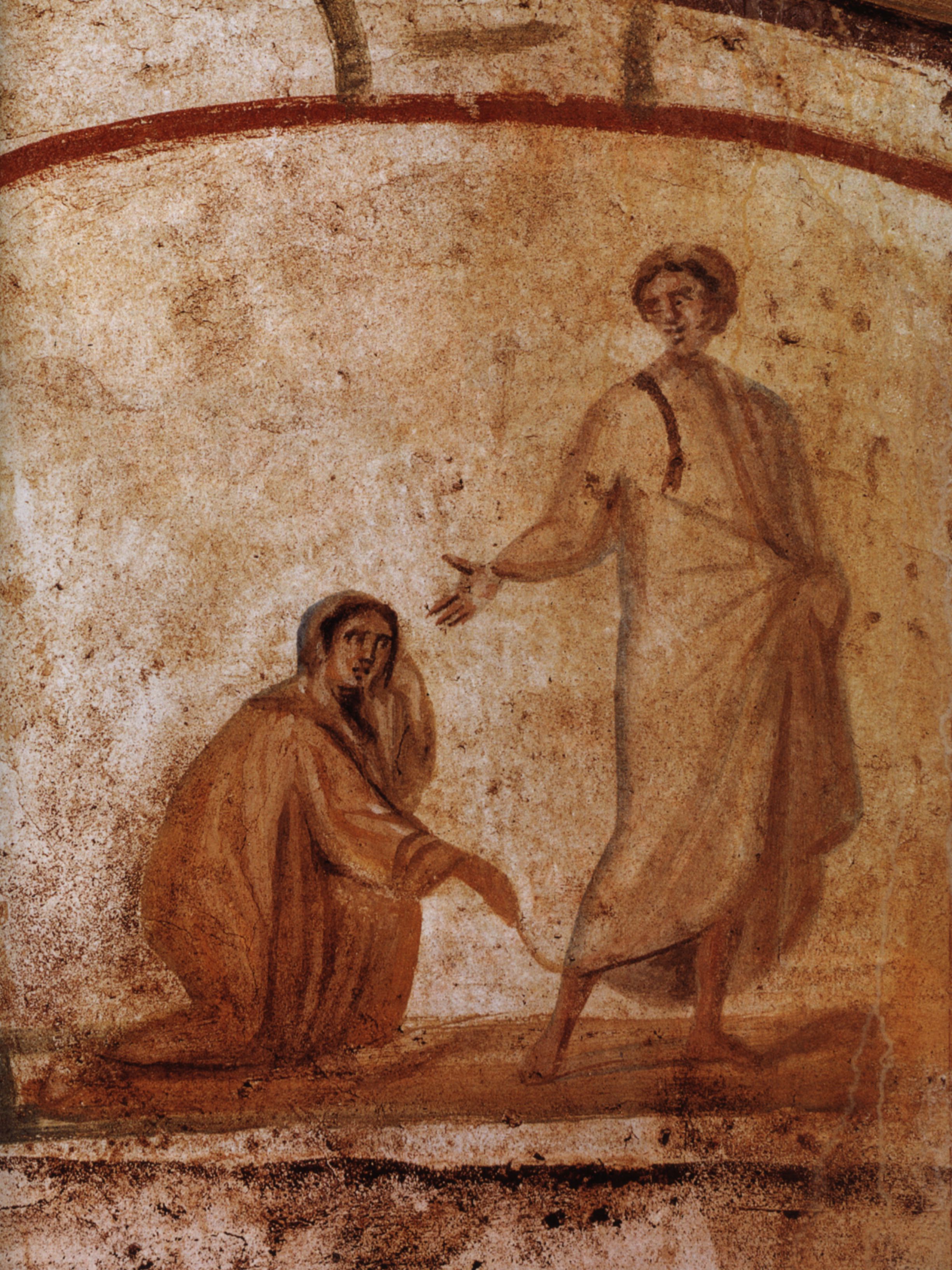It is no secret that much of what passes for Christian spirituality these days has devolved into a "just me and Jesus" kind of spirituality. Individual devotions and prayer are critical components to the practice of our faith, but when there is nothing more, much of the essence of Christian spirituality has been lost.
What is lost in "just me and Jesus" spirituality? The use of our five senses. An individualized faith engages in a limited use of just a few senses, such as the use of sight to read the Bible, or hearing to listen to sacred music. However, the use of those two senses is limited in an individualized faith, and there is little or no experience of the holy through the other senses of touch, taste, or smell. Some people, due to physical or mental limitations, are unable to use one or more their senses, so God will come to them through the senses they can use. However, for those of us who are able to use all five of our senses, we are depriving ourselves of the sacred gifts God has given to us if we limit our spiritual practices to the use of only one or two senses.
In this article, I'm going to explore how God comes to us through the sense of touch.
An episode from the Gospel of Mark powerfully demonstrates the importance of the sense of touch. Jairus, the leader of a synagogue, approached Jesus and begged him to heal his daughter through the use of touch: "Come and lay your hands on her, so that she may be made well, and live." (Mark 5:23). While he was on his way to Jairus' daughter, a hemorrhaging woman discretely approached Jesus, hoping to be healed by touching him without anyone noticing: "If I but touch his clothes, I will be made well." (Mark 5:28). Jesus sensed that someone had touched him, and instead of chastising her, he proclaimed: "Daughter, your faith has made you well." (Mark 5:34). He proceeded to go to the house where the body of Jairus' daughter was lying, and "[he] took her by the hand and said to her 'Talitha cum,' which means 'Little girl, get up.'" (Mark 5:41). And the girl arose. Christ did not heal people through waving a magic wand or saying an incantation - he used the sense of touch.
(A visual depiction of Jesus healing the woman, found in the catacombs of Rome).
The healing power of touch was not just limited to Jesus, as this curious little passage in Acts reminds us: "God did extraordinary miracles through Paul,
so that when the handkerchiefs or aprons that had touched his skin were
brought to the sick, their diseases left them, and the evil spirits came
out of them." (Acts 19:11-12). (As a side note, that handkerchief sounds a lot like what Catholics would call a second class relic - could this be another example of the Reformers throwing out the proverbial baby out with the bathwater?).
Perhaps the most important story in Scripture involving the sense of touch was immediately after the resurrection: "(Jesus) said to Thomas, ‘Put your finger here and see my hands. Reach
out your hand and put it in my side. Do not doubt but believe.’ Thomas answered him, ‘My Lord and my God!’" (John 20:27-28). The importance of touch to the early Church was later confirmed in the opening words of 1 John:
"We declare to you what was from the beginning, what we have heard, what
we have seen with our eyes, what we have looked at and touched with our
hands, concerning the word of life" (1 John 1).
The continuing importance of the sense of touch to our lives together as a Christian community is reflected by the fact that many of our most important rites include the "laying on of hands" - baptism, affirmation of baptism (a/k/a confirmation), ordination, and healing (which also typically involves anointing with oil). Even outside of the official rites of the Church, the sense of touch can be powerful - sometimes holding a patient's hand in a hospital room, or embracing someone who has experienced a loss, does much more to assist in the healing process than our attempt to console through words.
The sense of touch can even be important to our individual spiritual practices. I wear a chotki (prayer rope) on my wrist, and have found it to be an aid to my personal prayer life. Sometimes, at an almost subconscious level, I find that my other hand has drifted to touching the knots on the rope, and I begin praying the Jesus Prayer ("Lord Jesus Christ, Son of God, have mercy on me, a sinner"). That is probably just one example of the many ways that an increased use of the sense of touch can enhance personal spiritual disciplines.
In my next post in this series, I will explore a topic appropriate for the upcoming Thanksgiving holiday - the importance of taste to Christian spirituality.

No comments:
Post a Comment